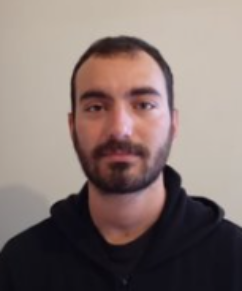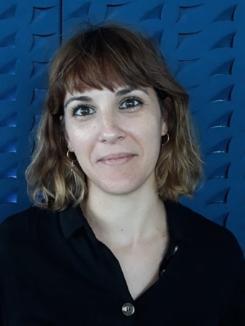Summer School Speakers
Prof. Elena Blokhina, University College Dublin & Equal1
- Elena Blokhina is with University College Dublin and Equal1 Laboratories Ireland (CSO). She is a member of the Steering Committee of the UCD Centre of Quantum Engineering, Science, and Technology (CQuEST) and a member of the National Advisory Forum for Quantum Technologies (Ireland). Prof Blokhina is the past Chair of the IEEE Technical Committee on Nonlinear Circuits and Systems and is a member of the Quantum Information Systems and Application of the IEEE Microwave Theory and Technology Society. She has been elected to serve on the Board of Governors of the IEEE Circuits and Systems society for the terms 2013-2015 and 2016-2018. She served as an Associate Editor for IEEE Transaction on Circuits and Systems I, IEEE Access and other journals, Deputy Editor in Chief of IEEE TCAS-I (2018-2021). She has served as a reviewer and programme committee member for many international journals and conferences on electronics, physics and quantum electronics. Her research interests include microelectronic systems, quantum dots, semiconductor qubits, quantum computing and quantum information processing on chip.
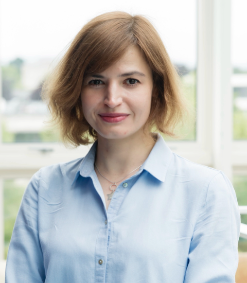
Dr. Ioanna Kriekouki, Viqthor
- Ioanna Kriekouki received her M.Sc. in Nanosciences and Nanotechnologies from Université Grenoble Alpes (UGA), France, in 2017. She pursued an industrial Ph.D. jointly at UGA and Université de Sherbrooke (Canada), supported by a CIFRE fellowship in collaboration with STMicroelectronics, France. Her doctoral research focused on the design, modeling, and characterization of silicon nanostructures and quantum devices fabricated using industry-standard techniques for quantum computing applications. She later worked as a Senior Quantum Engineer at Equal1 Laboratories, where she contributed to the development of scalable silicon-based qubit devices. In 2025, she joined Viqthor as CQO, leading efforts to meet client needs in solid-state qubit measurement solutions.
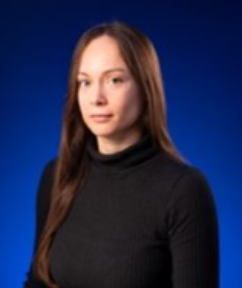
Dr. Luca Planat, Silent Waves
- Luca Planat owns an engineer degree (2016) from Grenoble INP Phelma and did a PhD in quantum physics between 2016 and 2020 at the Institut Néel, Grenoble, France. During his PhD, he focused on the development of wideband, near quantum-limited, microwave amplifiers. These amplifiers are key pillars for large-scale quantum processor readout since they provide very high signal noise ratio over several gigahertz bandwidth. Early 2022, Luca Planat has co-founded Silent Waves, together with his former PhD supervisor, Nicolas Roch, and Baptiste Planat.
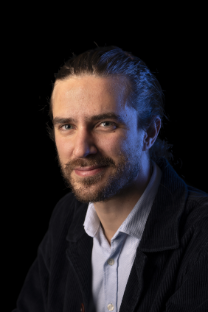
Alberto Gomez Saiz (Quantum Motion)
-
Alberto Gomez Saiz is the Principal IC Engineer and IC team lead at Quantum Motion, a UK start-up developing a silicon-based quantum computer. He holds an M.Sc. in IC Design from Imperial College London (2013) and an M.Sc. in Quantum Technologies from UCL (2022). Since 2024, he has been pursuing an industrial Ph.D. in Quantum Electronics at Imperial College London and Quantum Motion, supported by the 1851 Royal Commission Industrial Fellowship. His research interests lie in cryo-CMOS circuit design for controlling quantum processors and exploring novel analog and RF circuit topologies that combine conventional and quantum components.
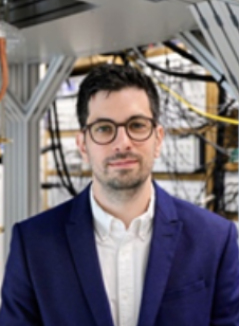
Prof. Carmen Garcia Almudever, Technical University of Valencia
- Carmen G. Almudever received the P.hD. degree in Electronic Engineering from the Universitat Politècnica de Catalunya (UPC BarcelonaTech), Barcelona, Spain, in 2014. From 2014 to beginning 2021, she was an Assistant Professor at the Quantum and Computer Engineering Department and group leader of the Quantum Computing division of QuTech at Delft University of Technology, where she worked on the definition and implementation of scalable quantum computer architectures. In February 2021, she joined Universitat Politècnica de València, where she is currently an Associate Professor. Her research focuses on different aspects full-stack quantum computing systems including quantum compilers, quantum error correction, fault-tolerant quantum computation, quantum machine learning and benchmarking and scalability of (modular) quantum computers.
Prof. Christian Enz, EPFL
- Christian Enz, PhD, Swiss Federal Institute of Technology (EPFL), 1989. He is currently an Emeritus Professor from EPFL. Before he was Full Professor heading the IC Lab at EPFL. Until 2021 he was Director of the Institute of Microengineering and of the EPFL campus in Neuchâtel. Until April 2013 he was VP at the Swiss Center for Electronics and Microtechnology (CSEM) in Neuchâtel, Switzerland where he was heading the Integrated and Wireless Systems Division. Prior to joining CSEM, he was Principal Senior Engineer at Conexant (formerly Rockwell Semiconductor Systems), Newport Beach, CA, where he was responsible for the modeling and characterization of MOS transistors for RF applications. His technical interests and expertise are in the field of ultralow-power analog and RF IC design, wireless sensor networks and semiconductor device modeling. Together with E. Vittoz and F. Krummenacher he is the developer of the EKV MOS transistor model and the author of the book "Charge-Based MOS Transistor Modeling - The EKV Model for Low-Power and RF IC Design" (Wiley, 2006). He is the author and co-author of more than 280 scientific papers and has contributed to numerous conference presentations and advanced engineering courses.
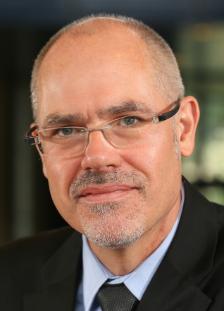
Dr. Christoforos Theodorou, CNRS
-
Christoforos Theodorou (Ph.D. 2013), is currently a CNRS Researcher at the CROMA laboratory, Grenoble, France. His main research focuses on the characterization, modeling and simulation of noise and variability effects in novel nano-scale devices (SOI FETs, ReRAMs, 2D, III-V..) and circuits, with a more recent interest on cryogenic electronics. He is the author/co-author of 67 journal articles, 47 commutations in International Conferences and 1 book chapter, a TPC member for the ESSERC, ULIS/EUROSOI and MOCAST conferences, and member of the steering committee in the International Conference on Noise and Fluctuations (ICNF).
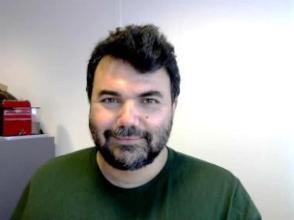
Nikolaos Schetakis, QUINN & University of Crete
- Nikolaos Schetakis holds a Bachelor's degree in Physics from the University of Crete and a Master's degree from the Technical University of Crete, completed in 2008 and 2012, respectively. He has built a diverse career spanning both industry and academia, with a strong focus on emerging technologies. Since 2022, he has served as the CEO of Quantum Innovation Pc in Chania, Greece, where he leads innovative projects at the forefront of quantum computing. Additionally, he is the Head of Research and Technology at ALMA SISTEMI Srl in Rome, Italy, where he supervises multiple European Union-funded projects. His research interests primarily lie in the fields of classical and quantum machine learning. With nine years of industry experience and six years of academic research, Nikolaos has actively contributed to the advancement of knowledge in quantum computing, data science, and artificial intelligence through his extensive project involvement.

Dr.-Ing. Lotte Geck, Forschungszentrum Jülich GmbH
- Lotte Geck completed her doctoral degree from the RWTH Aachen University in 2020 and continued to research scalable electronic systems for quantum computing as a Postdoc at the Forschungszentrum Jülich GmbH, Germany. Since 2022, she holds the Junior Professorship “System Engineering for Quantum Computing” at the RWTH Aachen University, while continuing her research in Jülich at the Peter Grünberg Institute (PGI), Integrated Computing Architectures (ICA | PGI-4).
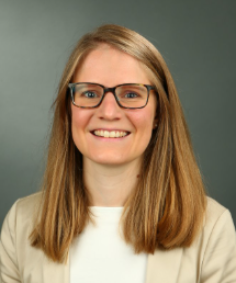
Dr. Kaveh Delfanazari, University of Glasgow
- Dr Kaveh Delfanazari holds a Leverhulme Trust Research Fellowship from the Royal Academy of Engineering and is an Associate Professor (University Senior Lecturer) of Electronic and Nanoscale Engineering at the James Watt School of Engineering and Centre for Quantum Technology, University of Glasgow (UofG), UK. Dr Delfanazari's research is broadly concentrated on developing novel software and hardware architecture (based on hybrid semiconducting, graphene, and superconducting quantum materials) for robust quantum computing, quantum information, quantum communication, and green energy.
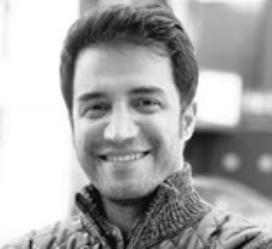
Prof. Panagiotis Dimitrakis, NCSR DEMOKRITOS
- Dr Panagiotis Dimitrakis (ORCID No. 0000-0002-4941-0487) graduated the Physics Department of the University of Athens (BSc 1995, MSc 1998) and received his PhD degree in Nanoelectronics in 2006 from the National Technical University of Athens. Dr Dimitrakis has long experience in process design and electronic device fabrication for logic and memory applications. He has coordinated research projects for the development of memristive devices for neuromorphic and quantum computing and the development of super-and semiconducting qubits. He has coordinated or was PI of 6 national industrial project on GaN RF circuits on Si for 5G funded by GSRI. Currently, he is the PI of a project funded by HFRI for the development of AI chips. Also, he is the PI of two Horizon Europe projects on chip fabrication facilities (INFRACHIP) and interfacing HPC with Quantum computers (NOUS). He has published more than 82 papers in international peer-reviewed journals (>2500 citations, h-index: 24) and several book chapters. He is the editor of three books on electronic non-volatile memories. He has 14 invited talks and 60 papers in international conference proceeding volumes. He has organized 20 international conferences in Greece, Europe, Asia and USA. He is a Senior Member of IEEE, HiPEAC, Associate Editor in IEEE Nanotechnology Magazine (2020-2022) and served as guest editor in several special issues of International Journals. He is member of the governing board of European Institute SINANO and deputy director of the MSc Program “Quantum Computing and Quantum Technology”. He joined National Center for Scientific Research “Demokritos” in 2007 as Research Officer, elected as Senior Researcher in 2017 and from 2021 he is Director of Research. Presently he is with the Institute of Quantum Computing & Quantum Technology at NCSR “D”. His research interests are focused on novel nanoelectronic devices, AI hardware accelerators, qubit and quantum sensing devices, quantum computing and quantum simulators.
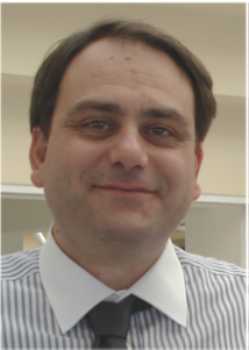
Dr.-Ing. Patrick Vliex, Forschungszentrum Jülich GmbH
-
- Patrick Vliex received the B.Sc., M.Sc. and Dr.-Ing. degrees in electrical engineering from the RWTH Aachen University, Aachen, Germany, in 2014, 2016, and 2021, respectively. Since 2017, he has been working and conducting research at the Peter Grünberg Institute (PGI), Integrated Computing Architectures (ICA | PGI-4), Forschungszentrum Jülich GmbH, Germany. His focus is on the development of cryogenic control electronics for quantum computing applications by using the scalability of modern CMOS technologies for the design of integrated circuits located near the qubits. His work has demonstrated the co-integration, at milli-Kelvin temperatures, of a semiconductor qubit device and voltage bias generator integrated circuit. Since 2022, he has been the Project Lead of Cryogenic Electronics at ICA.
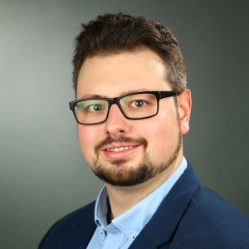
Dr. Agostino Apra, Equal1
- Agostino Apra is a specialist in semiconductor quantum dot devices. During his PhD in CEA-Grenoble, his research focused on silicon quantum dot arrays. Since 2023, he has been working as a Senior Quantum Engineer at Equal1, leading quantum experiments and working for the development of a scalable quantum computing platform.
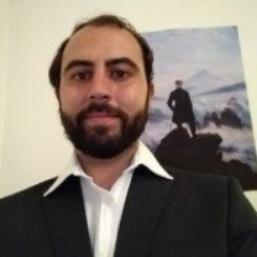
Dr. Vikas Remesh, University of Innsbruck
- Dr. Vikas Remesh is a postdoctoral researcher in the Photonics Group at University of Innsbruck since 2020, leading the quantum dot research subgroup. He holds an Erasmus Mundus joint PhD in Photonics Engineering from the Institute of Photonic Sciences (Barcelona, Spain) and Institut Fresel (Marseille, France). He is trained in nonlinear optical microscopy (cryogenic and room-temperature) and ultrafast spectroscopy of diverse platforms such as molecules, nanoantennas, quantum dots and 2D materials. At University of Innsbruck he led the first experimental demonstration of a novel red-detuned excitation of a quantum dot, along with a fiber-integrated technique for plug-and-play quantum dot photon source. He currently leads various projects at the interface of optical coherent control and quantum technologies, funded by national and international research grants. His research interests include single-emitter spectroscopy, nanophotonics and quantum technologies.
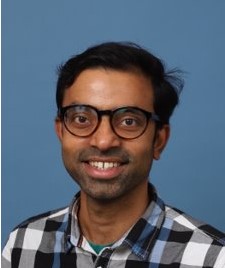
George Psaroudis, PhD Candidate, University of Glasgow
- Giorgos Psaroudis is a recipient of the James Watt School of Engineering Scholarship, undertaking a PhD at the University of Glasgow. He is currently in the 3rd year of his PhD, under the supervision of Dr. Giorgos Georgiou in the Ultrafast Quantum THz Electronics (ultraQUTE) Lab. His PhD focuses on the nanofabrication of highly efficient THz sources and their potential integration in solid-state quantum systems.
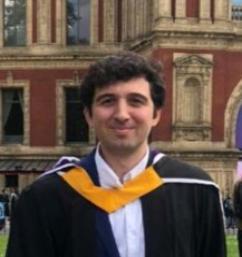
Dr. Anatoly Kulikov, ETH Zürich
- I am a member of the Quantum Device Lab in ETH Zürich working on quantum communication using superconducting circuits. After receiving my BSc and MSc degrees in theoretical physics from St. Petersburg State University, I joined the SQD Lab in the University of Queensland, Australia, for PhD to work with in-situ control over superconducting qubits in 2016. Since 2021, I have been working in Switzerland with the SuperQuLAN project under the Horizon 2020 EU programme. Here, we have assembled a 30-metre-long superconducting quantum link connecting two dilution cryostats. With this system, we are experimentally exploring non-locality as a resource, device-independent algorithms and distributed quantum computation and quantum communication protocols.
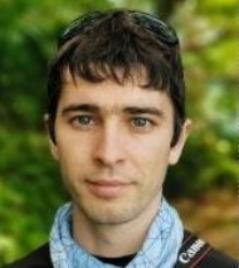
Prof. George Kanellos, University of Athens
- Dr George T. Kanellos (Bsc/PhD ECE/PCRL NTUA 2002/2008) is an Ass. Professor with the Department of Informatics & Telecommunications of the National and Kapodistrian University of Athens - NKUA, Greece. Before that, he was a Senior Lecturer at the University of Bristol (2017-2022) and a Senior Research Fellow with the WinPhos Group of the Aristotle University in Thessaloniki/ Centre for Research and Technology Hellas (CERTH) (2010-2017). Dr. Kanellos research focus on secure optical and quantum communications for terrestrial and satellite networks, the quantum internet and quantum computing as well as on optical interconnects and distributed compute systems. Dr Kanellos has previously worked in more than 20 EU and National funded projects, has led the technical efforts in several EU and National funded projects, including EU projects FET-ICT-RAMPLAS and H2020-ICT-STREAMS, he was the Bristol PI for EU-H2020-UNIQORN and served as co-I for the EPSRC UK-National Quantum Communications hub project. Dr Kanellos has also worked with ESA in the ESA HYDRON - HyDRON Network Deployment Technology Roadmap. He currently serves as the technical coordinator for HellasQCI, the National EUROQCI project initiative, and he is the NKUA PI for EU quantum flagship project QSNP, the EU project LAIQA and the HFRI project QRONOS. Dr Kanellos has published more than 150 scientific publications with more than 2500 citations and is the co-author of 5 book chapters.
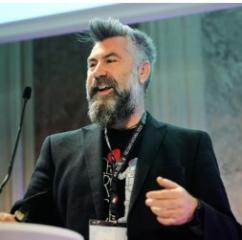
Argiris Ntanos, PhD Candidate, National Technical University of Athens
- Argiris Ntanos holds a university degree (5 years) from the School of Electrical and Computer Engineering at the National Technical University of Athens. From 2021 to 2025, he has been working at the Photonic Communications Laboratory, where he is conducting his doctoral dissertation on quantum cryptography and quantum communications. During this time, he has actively participated multiple European research programs focused on quantum communication technologies in optical fibers and free-space environments, as well as in the field of optical satellite communications. He has published in over 30 scientific journals and international conferences, receiving more than 130 citations within four years.
